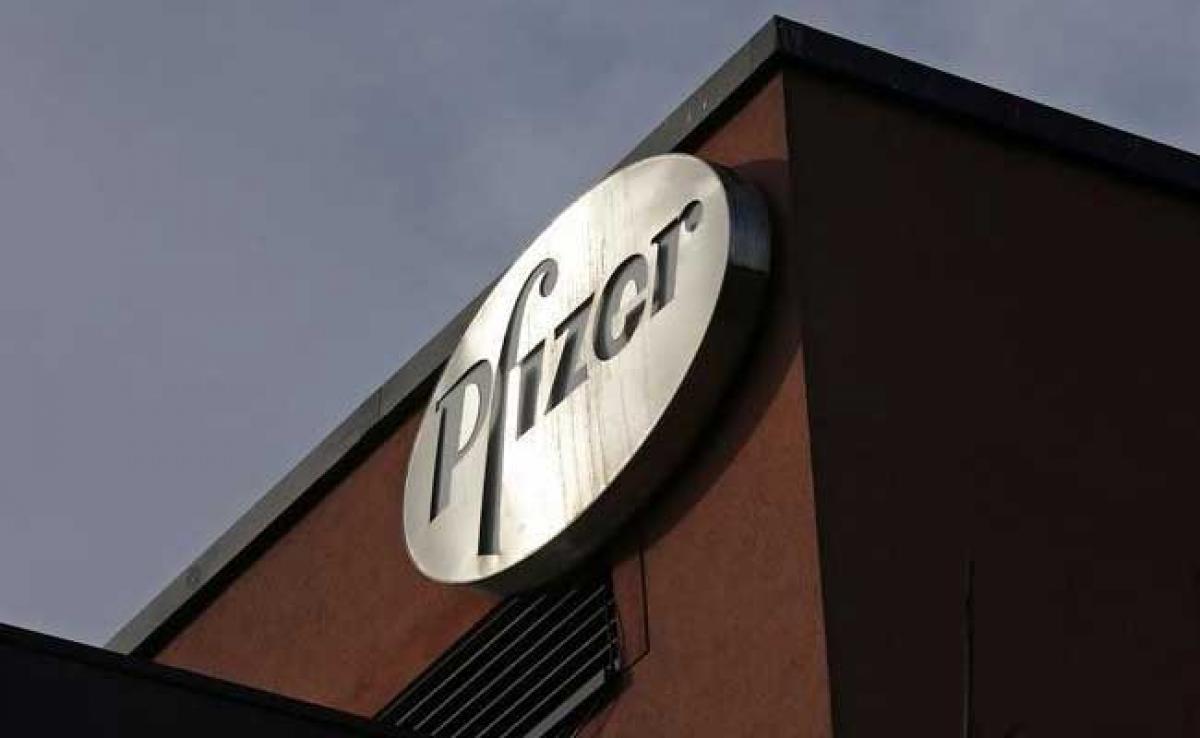Live
- 2024 on track to be hottest year on record
- PM Modi’s visit to Solapur: Women applaud ‘Double-Engine’ government’s initiatives
- Nagarkurnool MLA Dr. Kuchukulla Rajesh Reddy Campaigning in Maharashtra Elections
- Wife Kills Husband with Her Lover: Details of Veldanda Murder Case Revealed by SP Gaikwad
- Strict Action on Violations of Food Rights: Telangana Food Commission Chairman Goli Srinivas Reddy
- Smooth Conduct of Group-3 Exams with Strict Security Measures: Collector Badavath Santosh
- Delhi HC orders cancellation of LOC issued against Ashneer Grover, wife
- Shami’s absence a major blow for India in BGT, says Paul Adams
- Will organize protests at borders if attack on minority Hindus in Bangladesh not stopped: Bengal LoP
- Dutch Ambassador Marisa Gerard Meets Telangana CM A. Revanth Reddy in Delhi
Just In

Pfizer Inc has got a patent for its powerful pneumonia vaccine Prevenar 13 in the domestic market. This is a blow to some health groups that said this would put the treatment out of reach of thousands in poorer nations. The decision by the country’s patent office bars other companies from making cheaper copies of the vaccine and allows Pfizer to exclusively sell it in India until 2026.
Pfizer Inc has got a patent for its powerful pneumonia vaccine Prevenar 13 in the domestic market. This is a blow to some health groups that said this would put the treatment out of reach of thousands in poorer nations. The decision by the country’s patent office bars other companies from making cheaper copies of the vaccine and allows Pfizer to exclusively sell it in India until 2026.
It's a big victory for the US drugmaker in a market that has the world's largest number of pneumonia cases, a lung disease that kills nearly a million children a year globally.
The decision also has international implications, as several poorer nations rely on India's robust drugs industry to supply cheaper copies of medicines and vaccines.
It also comes at a time of ongoing US pressure on India to tighten its patent laws. The United States Trade Representative expressed concerns about India's intellectual property laws in a report in June, and listed it among the countries whose IP laws unfairly favour local companies.
Pfizer's vaccine protects children and adults from 13 types of pneumococcal bacteria, and a full vaccination course costs about $170 on the country’s private market.
The government started giving out the vaccine for free under its national immunisation program earlier this year, but the rollout like that of most vaccines in the program, is in phases, so only about 2.1 million of the 25 million eligible people in the country will get it this year.
The patent grant means domestic companies won't be able to make the vaccine for local customers, or exports.
"Manufacturers will have to find new routes to develop a non-infringing (pneumonia) vaccine, which may delay the availability of competing products in the pipeline from Indian producers," the medical charity Medecins Sans Frontieres (MSF) said in a statement.
MSF filed an objection to Pfizer's patent request last year on the grounds that a patent would deprive many developing nations of cheaper copies.
At least one Indian company, Panacea Biotec Ltd, is developing a cheaper form of the vaccine, and had also filed an opposition to Pfizer's patent request last year.
A source familiar with the matter said Panacea is considering filing a post-grant opposition. Separately, MSF said it was reviewing its legal options in the matter.
Pfizer's patent on the same vaccine was revoked by the European Patent Office last year, and is being challenged in South Korea and the United States, MSF said.
The pharmaceutical giant has made the vaccine available at discounted prices under the Global Alliance for Vaccines and Immunisation (GAVI) - an international public-private partnership to improve access to vaccines in the world's poorest countries. More than 50 countries are eligible to procure the vaccine through GAVI, according to the organization's website.
Following criticism over the high price of Prevenar 13, Pfizer reduced the vaccine price to non-governmental organisations last November, seeking to protect vulnerable people from illness in humanitarian crises.
Pfizer welcomed the granting of the patent, saying Prevenar 13 took two-and-a-half years to produce, and was launched in India in 2010.
"Pfizer remains committed towards further enhancing access of this vaccine in India, both in the market as well as through partnership with the Government to expand introduction in the public program," a spokeswoman said.

© 2024 Hyderabad Media House Limited/The Hans India. All rights reserved. Powered by hocalwire.com







